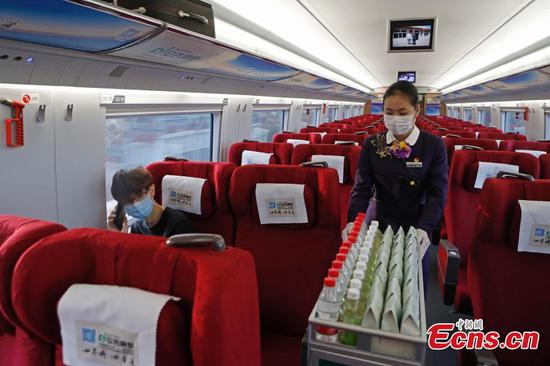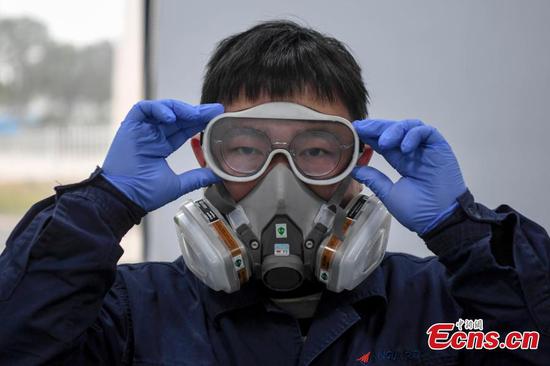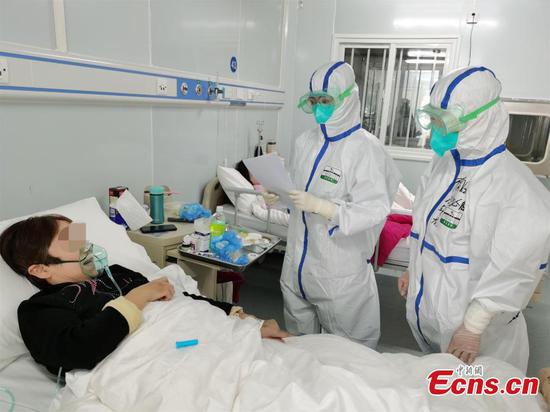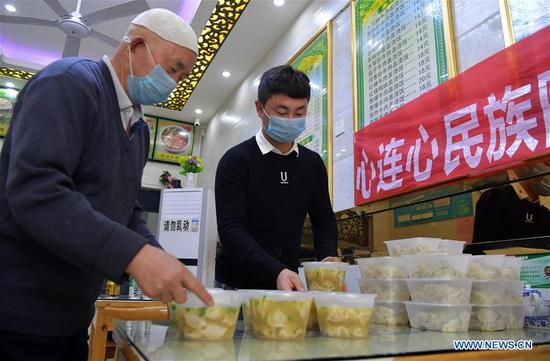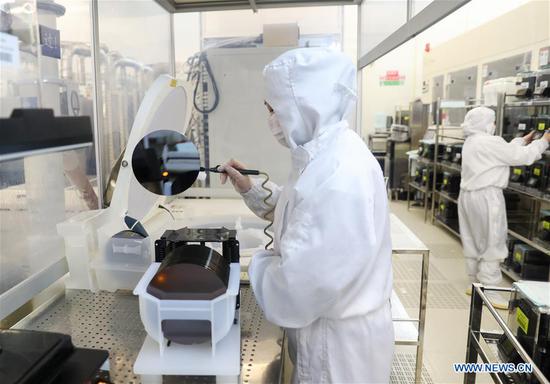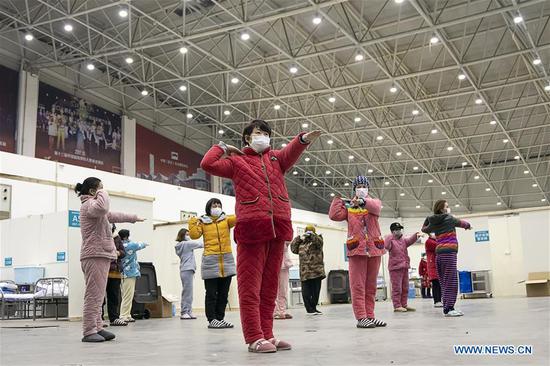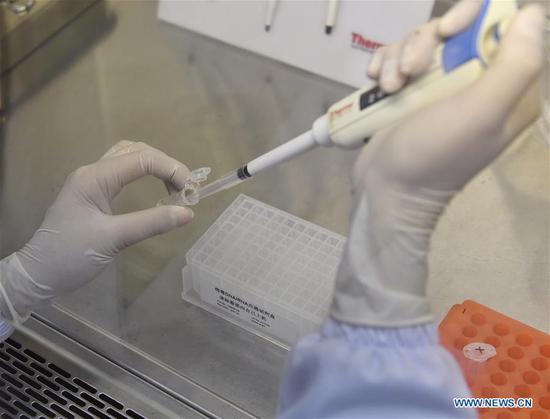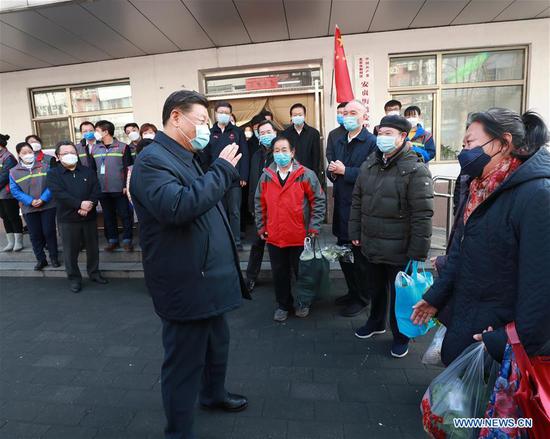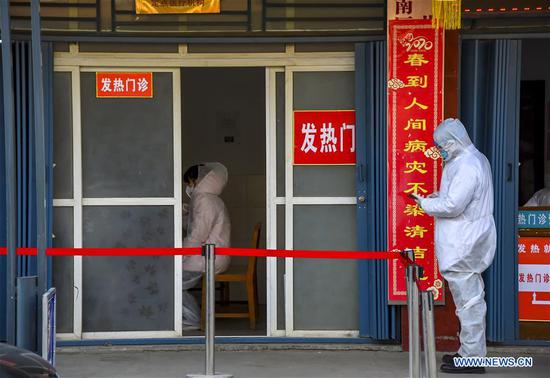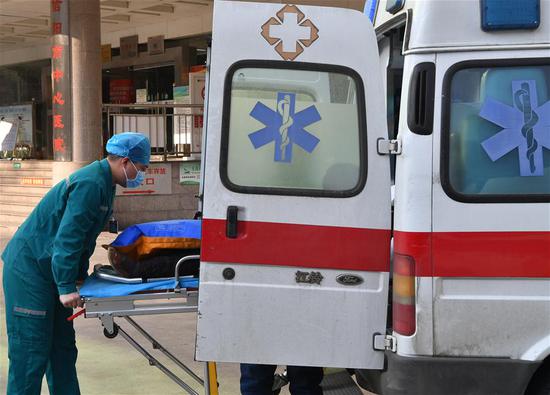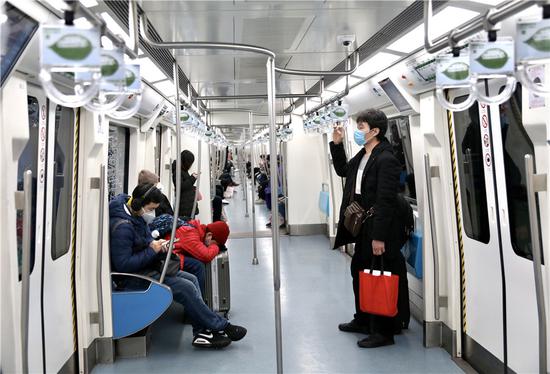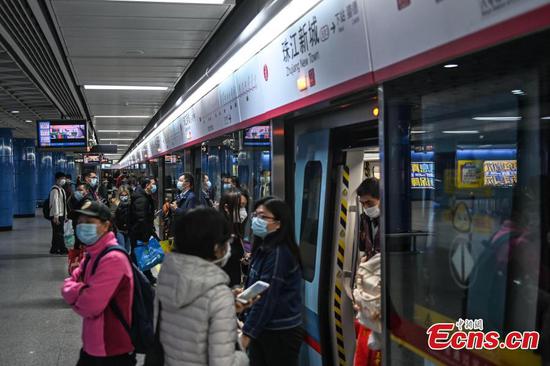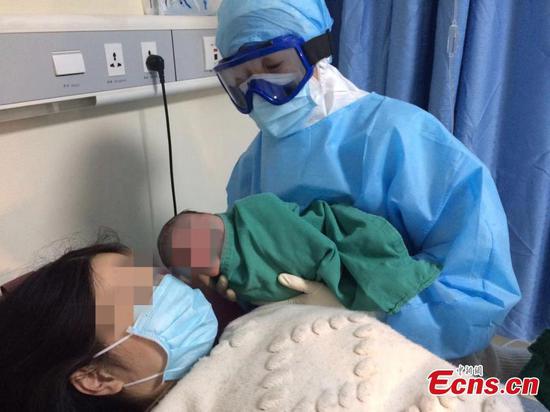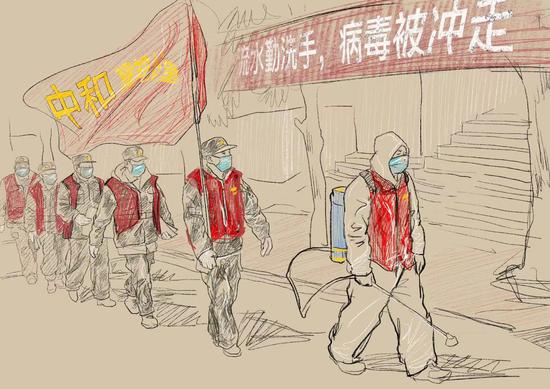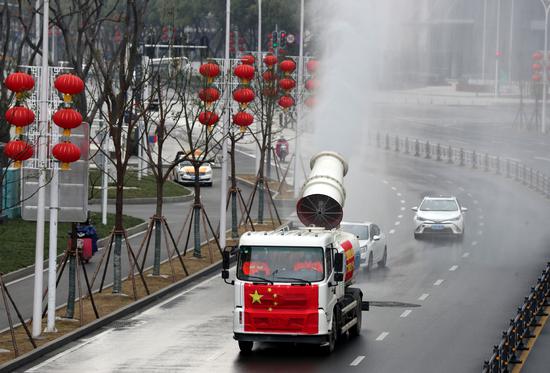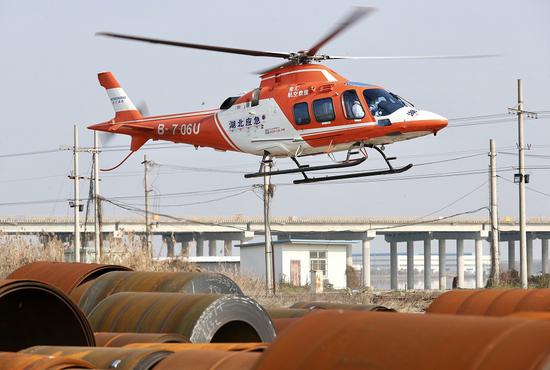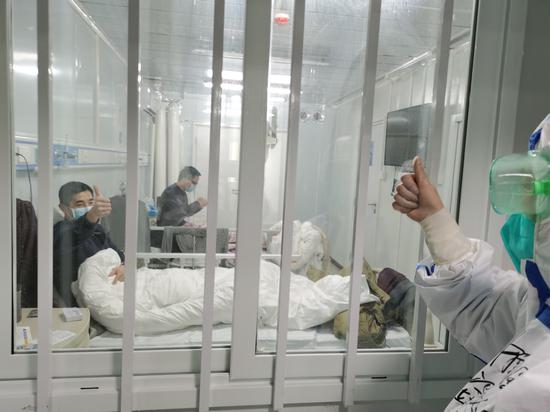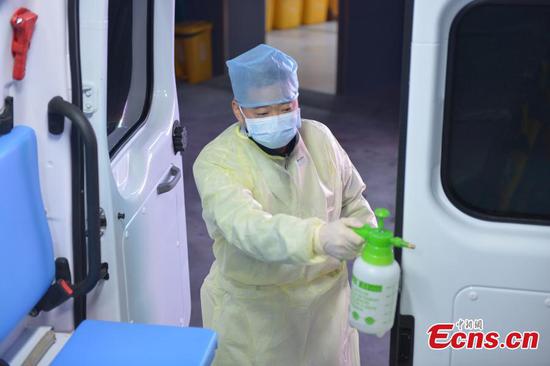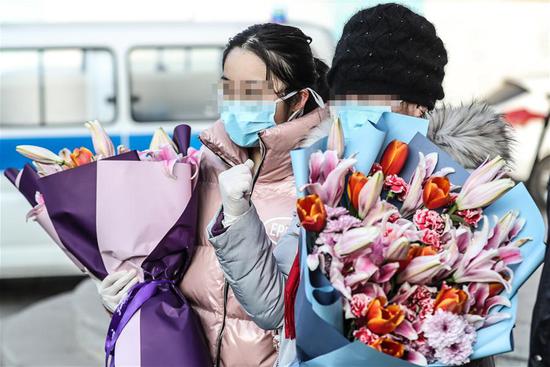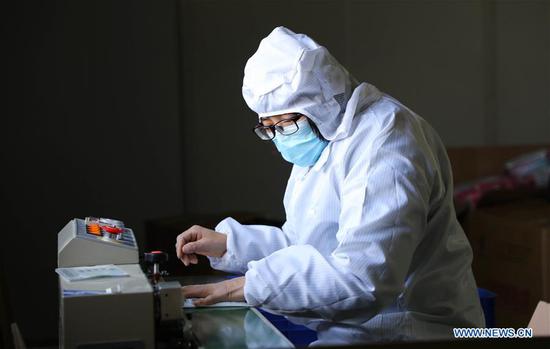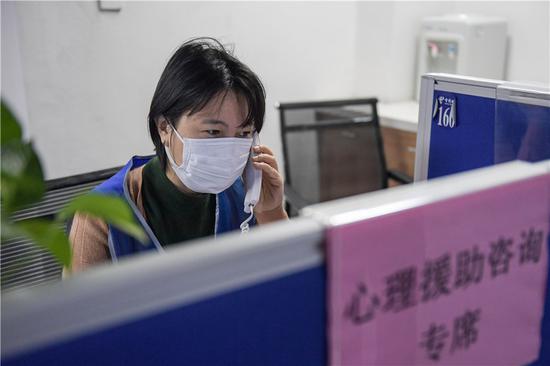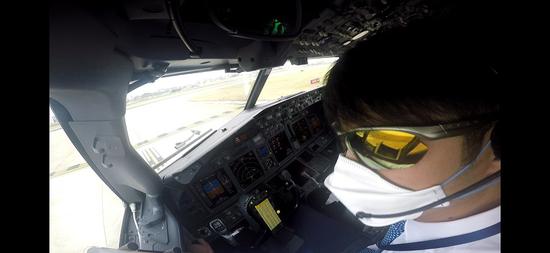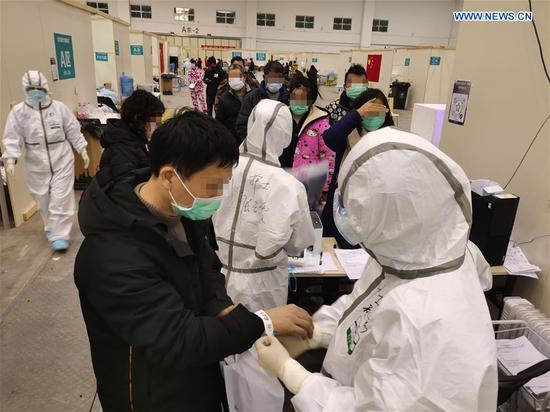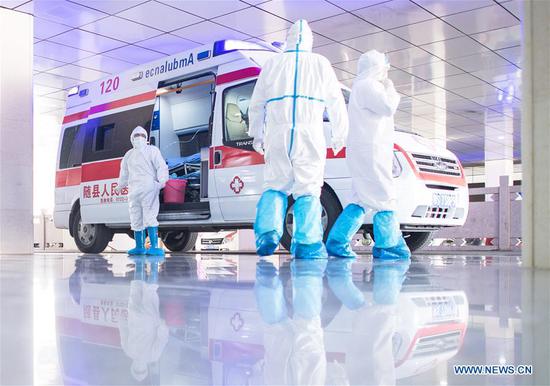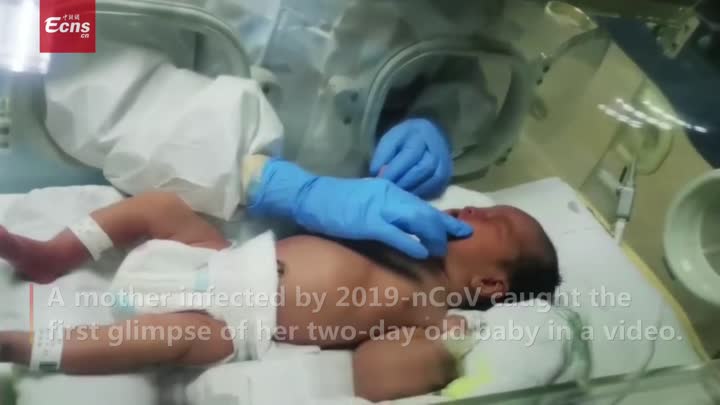New confirmed cases of the novel coronavirus pneumonia have seen their seventh consecutive day of decline in the Chinese mainland outside Central China's Hubei Province as of Tuesday, China's top health authority's data shows.
Health and epidemic experts suggested that the decreasing numbers show that the inflection point outside Hubei Province is expected to arrive in about 10 days and might arrive in Hubei in a month, and explained that the number of infections in Hubei is still growing as many patients are unable to get treated promptly due to the strain of medical resources there.
According to data from the National Health Commission, a total of 381 people on Monday were confirmed to be infected with the novel coronavirus pneumonia outside Hubei, China's Central Television (CCTV) reported. The numbers in previous days were 890, 731, 707, 696, 558, 509, and 444.
More cases of recovery have also been reported. According to CCTV, at least 40 people had recovered and were discharged from hospital in different parts of China on Monday.
As of Tuesday morning, the cases of recovery in China totaled 3,998, compared to 1,017 deaths, but some experts have urged caution against being too optimistic.
Huang Yanzhong, professor and director of global health studies at Seton Hall University's School of Diplomacy and International Relations, wrote for China Newsweek magazine that the real turning point might come in at least 10 days to a month. The turning point means the decline of overall numbers of confirmed cases and suspected cases.
He noted that the recovery numbers and decrease in new cases numbers show the effectiveness of measures taken by the government and the advantages of China's system, such as building makeshift hospitals, increasing medical staff numbers, mandatory quarantine, and extending the Chinese New Year holiday.
The main strategy in the next two weeks will still be to prevent cross-infection caused by contact, considering the long incubation period of the virus. The government should continue to communicate with people in a transparent and timely manner to prevent overreaction and unnecessary panic, Huang said.









